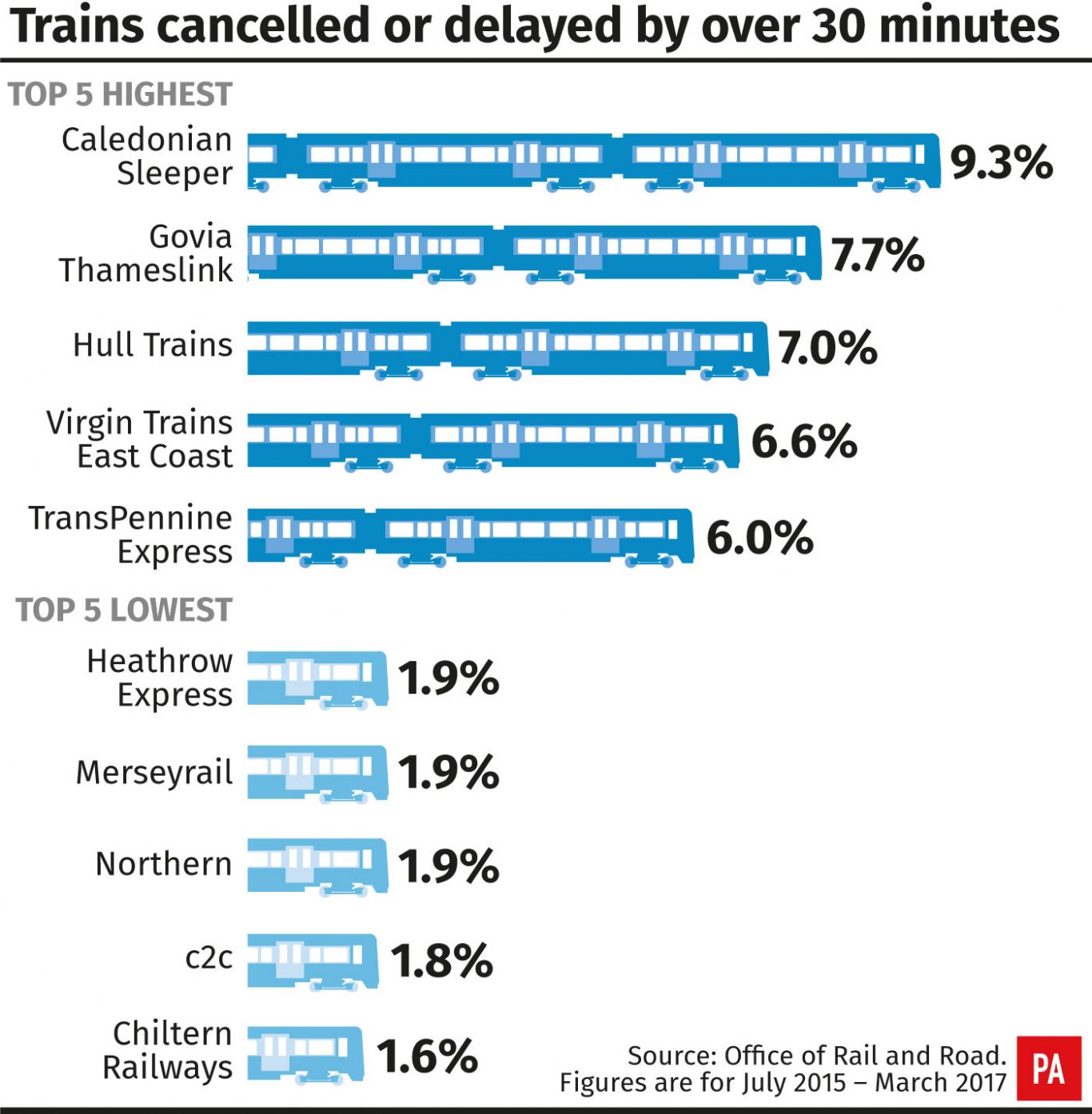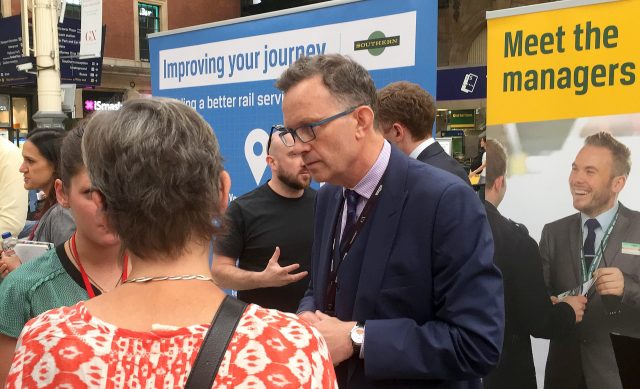
Value for money has not been achieved by the UK’s largest rail franchise, the Government spending watchdog said.
Passengers on the Thameslink, Southern and Great Northern (TSGN) franchise have suffered the worst disruption on the network since services began in September 2014, the National Audit Office (NAO) reported.
Industrial action has been a “major contributor” to delays and cancellations, but the Department for Transport (DfT) made decisions which “have negatively impacted on passengers”, it found.
⚠️ All lines blocked between #LondonBlackfriars and Elephant & Castle due to a fault with the electric third rail. Services will be subject to disruption. Underground, London Buses & @ldnoverground accepting tickets on reasonable routes. @SW_Help between Wimbledon and London
— Thameslink (@TLRailUK) December 27, 2017
The inquiry noted that the “complex and ambitious” franchise has the highest passenger numbers in the country and includes four major train services operating on a very congested part of the railway with unreliable infrastructure.
DfT officials failed to grasp the potential impact on passengers of combining an increase in capacity, targets to improve services and expansion of driver-only operated trains, which has led to strikes by trade union members.
Since Govia began operating the full franchise in July 2015, around 146,000 trains (7.7% of services) have either been cancelled or delayed by more than half an hour, compared with 2.8% on the rest of the network.
A large chunk of the disruption has been caused by a shortage of train crews.
⚠️ A number of incidents affecting services across the network today following train faults, a smoke alarm activation on a train at East Croydon, an ill passenger at Victoria & train crew issues. Services across the network may be cancelled, delayed up to 10 mins or revised
— Southern (@SouthernRailUK) January 8, 2018
Between the start of the franchise and August 2017, the DfT made franchise payments of £2.8 billion to Govia and received £3.6 billion from train tickets.
NAO head Amyas Morse said: “Over the last three years, long-suffering passengers on the Thameslink franchise have experienced the worst performance on the rail network.
“Some of the problems could have been avoided if the Department had taken more care to consider passengers in its design of the franchise.”

Transport Secretary Chris Grayling apologised for “all the mistakes that were made on this network” but said the biggest cause of the disruption was train crews going on strike.
He told BBC Radio 4’s Today programme: “I’m extremely sorry that passengers on Southern have had such a difficult time but most passengers on that network today will say over the past year things have got much better and so does the NAO.
“That is because we worked very hard to sort out the original problems but also because we’ve overcome most but not all of the industrial problems.”
Trade unions caused the rail disruption says Transport Secretary Chris Grayling #r4today pic.twitter.com/c3LdJV1YjP
— BBC Radio 4 Today (@BBCr4today) January 10, 2018
Govia chief executive Charles Horton said the difficulties faced by the franchise have “sometimes been greater than expected and we regret the disruption caused to our passengers”.
He went on: “I am more confident than ever that its trailblazing achievements will be felt by rail travellers for generations to come.”
Shadow transport secretary Andy McDonald said: “The National Audit Office’s claim that passenger misery could have been avoided if the DfT had taken more care to consider passengers is true for the entire railway.”

The RMT, which has been embroiled in a dispute with Southern over the role of guards for 20 months, described the report as “dynamite” and claimed it proves the Government has given Govia “a free hand to slash staff and run services into the ground”.


Comments: Our rules
We want our comments to be a lively and valuable part of our community - a place where readers can debate and engage with the most important local issues. The ability to comment on our stories is a privilege, not a right, however, and that privilege may be withdrawn if it is abused or misused.
Please report any comments that break our rules.
Read the rules here